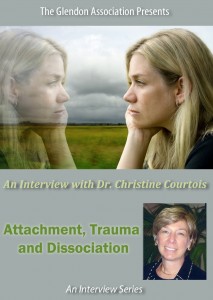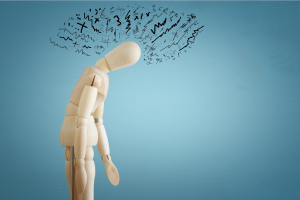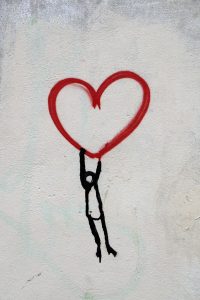Dr. Christine Courtois on Complex Trauma and Cognitive Distortion: VIDEO
Dr. Christine Courtois talks about complex trauma and the defense of minimization.
The following transcript contains part of an exclusive interview with Dr. Lisa Firestone and Dr. Christine Courtois.
CC I mean, I think that’s one of the fascinating things about this whole idea of complex trauma as well is — in one of the criteria subsumed — in one of the criteria is minimization. And that’s a cognitive distortion. And that you hear these stories and it’s curling your hair to hear the story and then the person says, “Aw, it wasn’t so bad. That’s just the way it was in my family.” So the perspective — especially that a child has — on what’s happening, I use a term that David Kaloff coined which is, in doing this work you have to – he says that you have to meet the child mind and you have to really come across the child logic and how the child really made sense. In a childlike way, which is different than adult meaning-making – but how a child made sense of it. And, you know, you get very illogical child logic as the way a child comprehends. And usually what a child does is blames themselves and exonerates the parent because, after all it was my parent and it wasn’t really so bad anyway.
One of the most, I think, extreme but also illustrative examples of all things comes from Marilyn Vanderberg, the former Miss America who wrote a book, Day Child, Night Child and her abuse experience. Her father was a very high level man in Denver society, very well-to-do wealthy powerful man who abused her at night and apparently she would stiffen up and hold herself really tight and he would sort of unlock her and abuse her. And she had that experience at night and would wake up and she called that “the night child” and she would wake up having forgotten or dissociated from the night child and the day child functioned and had a really good relationship with dad. And when she became Miss America, which is such an irony — the paradigm of American womanhood — and her father escorted her; that was “the day child.” And it was only when she was in the safety of her own marital relationship with a safe man that the defenses started to crumble and what she was up against was extreme body pain and extreme body tightening. And today we are hearing about freezing and conversion symptoms and it’s very much her lead into understanding what happened to her was the body work that she needed to do to unfreeze.
Order the Full DVD Interview:
 Attachment, Trauma and Dissociation
Attachment, Trauma and Dissociation
In this DVD, Dr. Christine Courtois draws upon her expertise in the field of trauma to discuss a variety of trauma related topics. She begins by talking about her work with survivors of childhood trauma, including the roles of attachment and dissociation. Dr. Courtois discusses the concept of the ‘Critical Inner Voice’ and Voice Therapy. She addresses how families can be a source of trauma, citing that statistically speaking “the most dangerous people to children are their intimates.” Dr. Courtois places an important emphasis on the extent to which individuals often minimize complex trauma, essentially saying of their abuse “Aw, it wasn’t so bad.” She discusses trauma bonding, repetition of trauma, and the treatment of violent individuals. Finally, Dr. Courtois offers some optimal parenting strategies “to promote the child’s self esteem” including building resilience and repairing negative experiences so that the child feels responded to and cared about.
Read More from Dr. Christine Courtois
 Christine A. Courtois, PhD, ABPP is a Psychologist in independent practice in Washington, DC where she is the principal of Courtois & Associates, PC. She received her PhD from the University of Maryland in College Park, in 1979. Dr. Courtois is immediate Past-President of Division 56 (Psychological Trauma) of the American Psychological Association and has recently published a revision of Healing the Incest Wound: Adult Survivors in Therapy (2010, 1988) and Treating Complex Traumatic Stress Disorders: An Evidence-Based Guide (2009) co-edited with Dr. Julian Ford. Her new book, The Treatment of Complex Trauma: A Sequenced, Relationship-Based Approach, co-authored with Dr. Ford, will be published by Guilford later this year. She is currently co-editing another book with him on the treatment of complex traumatic stress disorders in children (Guilford) and co-editing a book with Drs. Donald Walker and Jamie Aten on trauma and spirituality (American Psychological Association Books) to be published in 2013. She has authored two other books,Recollections of Sexual Abuse: Treatment Principles and Guidelines (1999) and Adult Survivors of Child Sexual Abuse: A Workshop Model (1993). Dr. Courtois has published numerous articles and chapters on related topics. She is a Founding Associate Editor of the new APA Division 56 journal, Psychological Trauma: Theory, Research, Practice, & Policy. She is Co-Founder (in 1990, with Joan Turkus, MD) of The CENTER: Posttraumatic Disorders Program, Washington, DC where she served as Clinical and Training Director for 16 years.
Christine A. Courtois, PhD, ABPP is a Psychologist in independent practice in Washington, DC where she is the principal of Courtois & Associates, PC. She received her PhD from the University of Maryland in College Park, in 1979. Dr. Courtois is immediate Past-President of Division 56 (Psychological Trauma) of the American Psychological Association and has recently published a revision of Healing the Incest Wound: Adult Survivors in Therapy (2010, 1988) and Treating Complex Traumatic Stress Disorders: An Evidence-Based Guide (2009) co-edited with Dr. Julian Ford. Her new book, The Treatment of Complex Trauma: A Sequenced, Relationship-Based Approach, co-authored with Dr. Ford, will be published by Guilford later this year. She is currently co-editing another book with him on the treatment of complex traumatic stress disorders in children (Guilford) and co-editing a book with Drs. Donald Walker and Jamie Aten on trauma and spirituality (American Psychological Association Books) to be published in 2013. She has authored two other books,Recollections of Sexual Abuse: Treatment Principles and Guidelines (1999) and Adult Survivors of Child Sexual Abuse: A Workshop Model (1993). Dr. Courtois has published numerous articles and chapters on related topics. She is a Founding Associate Editor of the new APA Division 56 journal, Psychological Trauma: Theory, Research, Practice, & Policy. She is Co-Founder (in 1990, with Joan Turkus, MD) of The CENTER: Posttraumatic Disorders Program, Washington, DC where she served as Clinical and Training Director for 16 years.









Leave a Reply
You must be logged in to post a comment.